Introduction
Don State Technical University is located in Rostov-on-Don, Russia. It is one of the largest, most scientific and technologically advanced and fastest-growing key universities in southern Russia. It provides undergraduate, master and doctoral education, covering major disciplines such as liberal arts, science, engineering, agriculture, economics and management.
Overview
Student size: There are 40,000 students, including 3,019 international students.
Faculty: There are 2,221 teachers, including 238 professors and 950 associate professors. 57.9% of the teachers have a doctorate and 16.21% are postdoctoral students.
History and establishment time
The school was founded on May 20, 1930. It was formerly the North Caucasus Agricultural Machinery College. In 1938, it was renamed the Agricultural Engineering College. On December 24, 1992, the college developed into 16 departments and changed its name from college to university. It also established branches in Volgodonsk, Taganrog, Azov and Yesentuki.
School strength
Teaching achievements: It has trained a large number of professional and technical talents and made important contributions to the economic and social development of Russia and other countries. Its graduates have outstanding performance in engineering technology, economic management, humanities and social sciences.
Scientific research cooperation: It has established cooperative relations with more than 180 universities around the world, and has carried out industry-university-research cooperation with many enterprises to jointly promote scientific and technological progress and innovative development. , the school also actively participates in international scientific research projects and conducts joint research with foreign scientific research institutions, which enhances the school's international influence.
Nature of the institution
Public university.
Educational philosophy
Advocate the market-centered talent training concept, focus on strengthening the connection with the market, and vigorously strengthen the construction of industry-university-research bases to provide guarantees for practical teaching, scientific research, student professional internships and graduate employment.
Key laboratories and disciplines
Key laboratories: The school has 4 scientific education centers and 30 science and technology laboratories.
Key disciplines: 14 national key disciplines, including applied economics, management, metallurgy, mechanical manufacturing and metal processing, mechanical engineering, electrical engineering, control science and engineering, computer science and information engineering, architecture, civil engineering, transportation, fisheries, chemistry, bioengineering, etc.
Department
The school has 24 There are 100 faculties, including Aircraft Manufacturing, Shipbuilding and Marine Technology, Automation, Mechatronics and Control, Agriculture, Media and Multimedia Technology, Life Safety and Environmental Engineering, Applied Linguistics, Bioengineering and Veterinary Medicine, Industrial and Civil Construction, Road Traffic, Psychology, Teacher Education and Child Deficit, Construction Engineering, Service and Tourism, Innovative Business and Management, Social and Humanities, Advanced Technology, Mechanical Manufacturing Technology, Sports and Sports Academy, Transportation and Service and Operation, Informatics and Computing Technology, Architecture, Design and Art, Law, Energy and Oil and Gas Industry, etc.
Ranking
Ranked 1401+ in the 2025 QS World University Rankings and 301-350 in the QS Emerging Europe and Central Asia.
Expenses
Tuition: Undergraduate 113,300-159,900 rubles/year, Arts 225,300 rubles/year; Master 140,300-196,200 rubles/year, 281,000 rubles/year for design majors.
Campus
Teaching facilities: The school has 20 teaching buildings, 7 dormitory buildings, 4 science education centers and 30 science and technology laboratories, providing students with good learning and scientific research conditions.
Living facilities: There are swimming pools, sports and fitness centers, canteens and other facilities on campus. The school also has a summer camp "Raduga" on the Black Sea coast for students to rest and relax.
-

Peter the Great St.Petersburg Polytechnic University
-
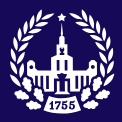
Moscow State University M. V. Lomonosov
-
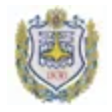
Bauman Moscow State Technical University
-
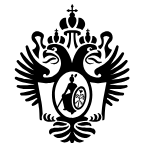
St. Petersburg State University
-
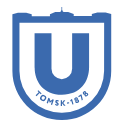
Tomsk State University
-
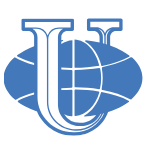
Peoples' Friendship University of Russia
-
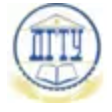
Don State Technical University
-
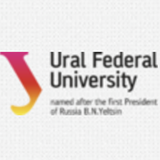
Ural Federal University
-

Moscow Institute of Physics and Technology
-
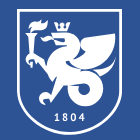
Kazan Federal University
-

Mesoamerican University
-

Istmo University
-

Mariano Galvez University of Guatemala
-

Regional University of Guatemala
-

Galileo University
-

Francisco Marroquín University
-

Rafael Landívar University
-

University of the Valley of Guatemala
-

University of San Carlos of Guatemala
-

Technological Institute of Tlaxcala Plateau
-

Golfo University
-

Technological University of South Sonora
-

Technological University of Huejotzingo
-

Tizimín Institute of Technology
-

Chilpancingo Institute of Technology
